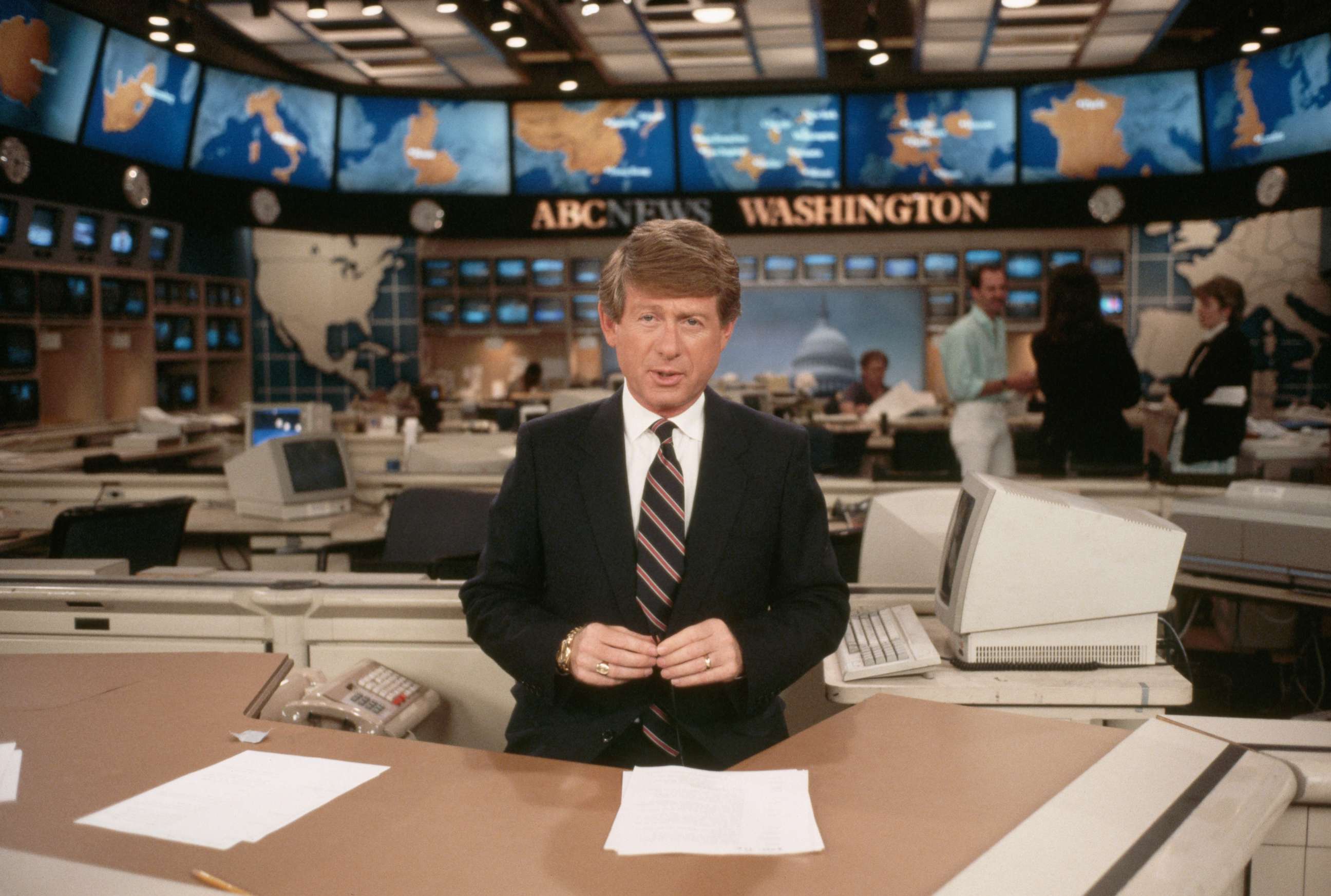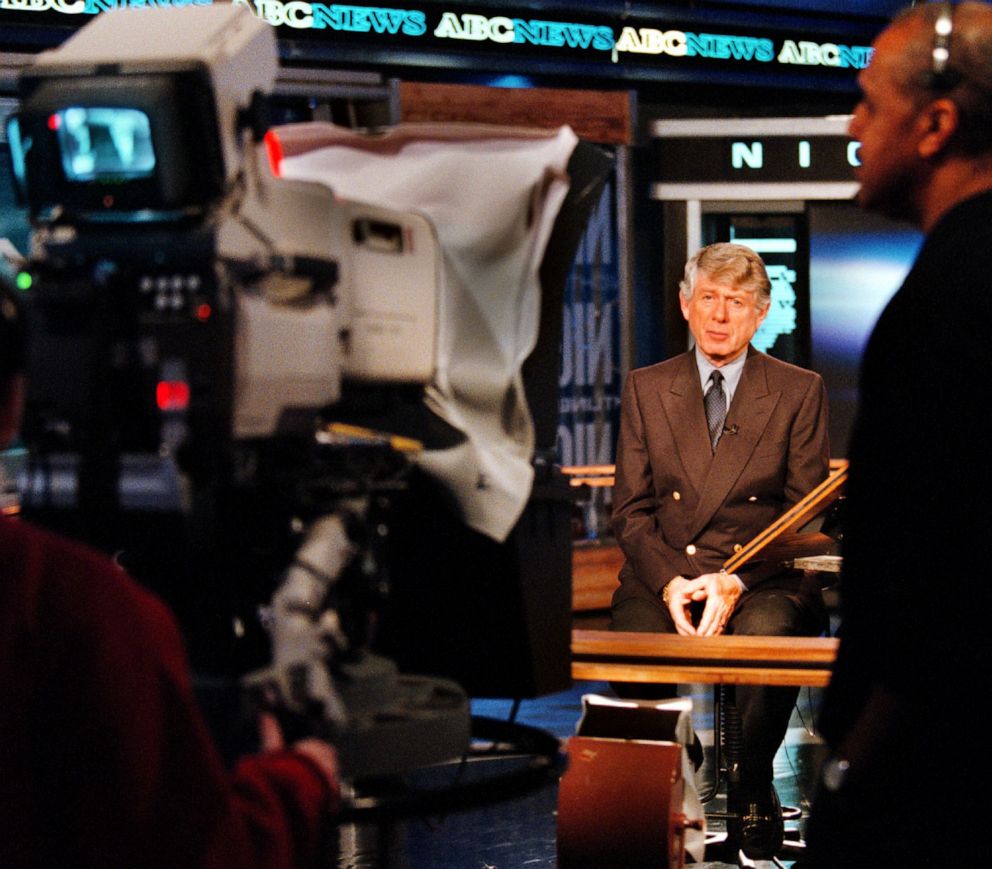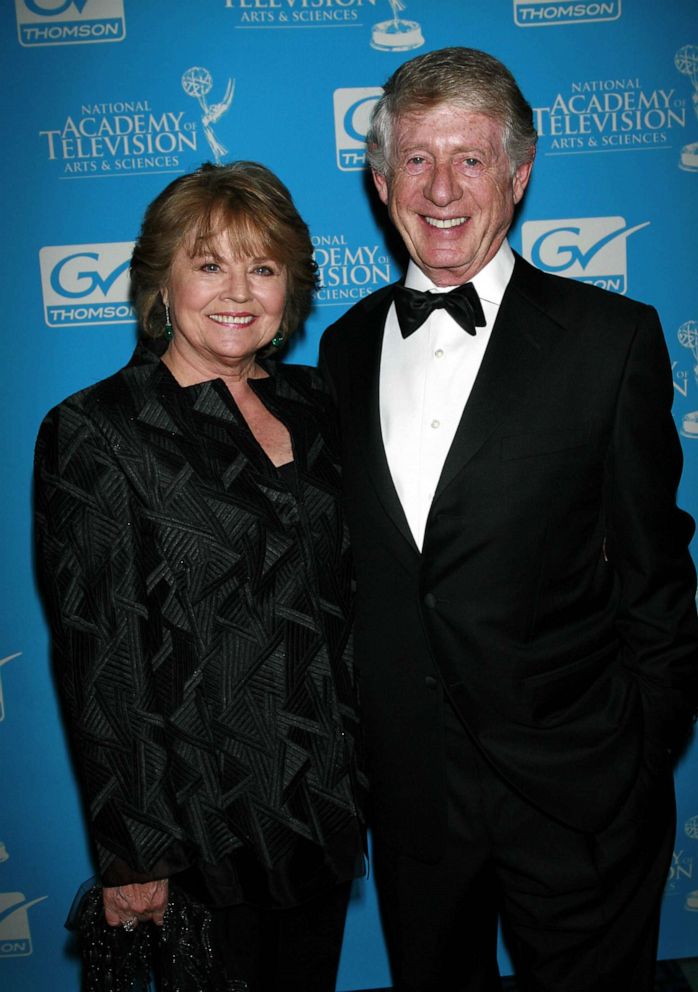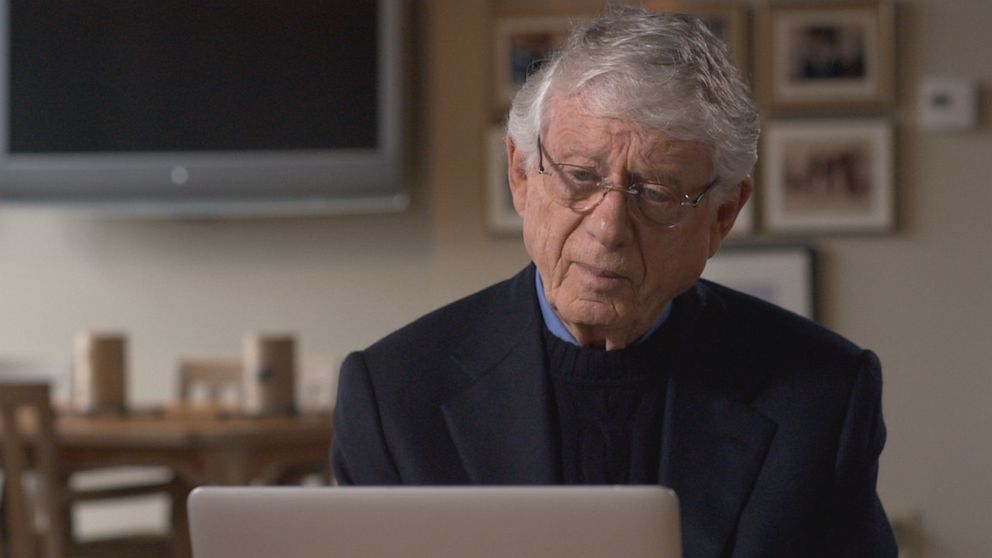'Nightline's' original anchor Ted Koppel reflects on show's 40th anniversary, fighting COPD and the coronavirus
Koppel hosted "Nightline" for 25 years.
Ted Koppel, who hosted ABC News’ "Nightline" for 25 years from its inception in 1980, said it was a "national obsession" with the Iran hostage crisis that drew people to tune in to the show, which first began as a special report called "America Held Hostage."
On Tuesday, exactly 40 years after "Nightline" first aired, "Nightline" co-anchor Juju Chang interviewed Koppel, who pointed to another "much bigger" crisis capturing much of the U.S. public’s attention: the coronavirus pandemic.

He said the pandemic is especially relevant to him because of the way it affects people with chronic obstructive pulmonary disease (COPD), a condition that his wife, Grace Anne Dorney Koppel, was diagnosed with in 2001. The two have been advocating for awareness of the disease and helping to fight it ever since.
"I don’t think people understand how much of a national problem COPD is and how relevant it is to what’s going on right now," Koppel said. "Because coronavirus … attacks the lungs."
People with COPD, Koppel said, are "probably more vulnerable" to COVID-19, "than almost any other group." The National Institutes of Health says people with COPD risk having serious complications from the COVID-19 virus, which includes trouble breathing, persistent pain or pressure in the chest, new confusion or inability to arouse and bluish lips or face.
COPD is a group of diseases that cause air-flow problems and issues with breathing, according to the Centers for Disease Control and Prevention. Chronic lower respiratory diseases, but primarily COPD, are the third leading cause of death in the U.S.

As people across the U.S. are directed to practice social distancing to stop the spread of COVID-19, Koppel said his wife has been training him "in this art for a long time."
"We have been doing elbow bumps rather than handshakes. Washing our hands constantly," Koppel said. "She keeps reminding me not to touch my face; that’s been going on for many years now."
Koppel said he and Dorney Koppel had set up a number of pulmonary rehabilitation clinics around the country whose patients had been told not to go due to social distancing despite needing the help the clinics provided.

He said more people need to take the infection seriously, and spoke about the thousands of people who could be seen celebrating spring break on Florida beaches last week and disregarding calls from local officials to social distance.
"Unfortunately, I think we find that people only begin to take things like this seriously when someone in their circle becomes critically ill, or even worse, tragically dies," Koppel said.
Koppel said older adults who may believe they’re safe from the virus also need to "wake up" to the reality of the disease.
"It really is too serious. It’s going to be too damaging. We’re already seeing what’s happening around the country," he said, noting that New York had become the epicenter of the crisis in the U.S.

He offered one last message to people across the country who might feel like they've lost perspective from the barrage of information and misinformation that’s been spread as a result of the coronavirus.
"It’s time more than ever in this country to come to the realization that what we need more than anything else, is reliable, credible journalists," he said. "The fact that so much information is being conveyed by people who have no background in journalism whatsoever but do have the ability through the internet to communicate absolute nonsense and sometimes damaging nonsense over the internet. This is a time when rather than questioning the credibility of the media, we need to reinforce it."




